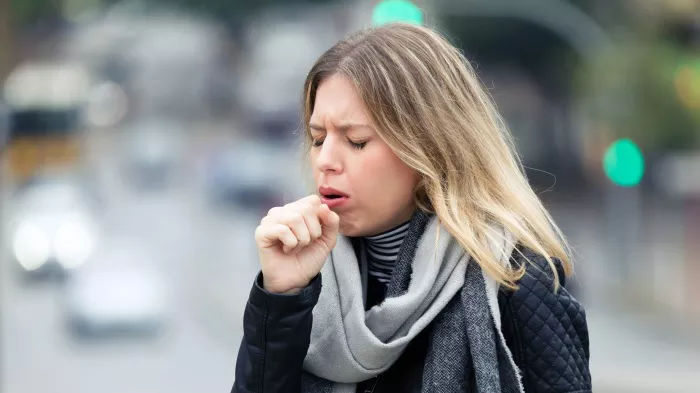Allergy cough is a common ailment that affects millions of people worldwide. This persistent cough can be a nuisance, impacting the quality of life for those who suffer from it. Understanding the root causes of allergy cough is crucial in managing and finding relief from this bothersome condition. In this comprehensive article, we will delve into the various factors that can trigger allergy cough and explore effective strategies to mitigate its symptoms.
What Is Allergy Cough?
Before we dive into the causes, it’s essential to have a clear understanding of what allergy cough is. An allergy cough, as the name suggests, is a cough that results from an allergic reaction. It is typically characterized by a dry, persistent cough that can be particularly bothersome, especially when it occurs frequently. This type of cough is often associated with other allergy symptoms, such as sneezing, runny nose, and itchy eyes.
Identifying Allergens
To comprehend the causes of allergy cough, it’s imperative to recognize the allergens that trigger it. Allergens are substances that can provoke an allergic reaction in susceptible individuals. Common allergens associated with allergy cough include pollen, dust mites, pet dander, mold spores, and certain foods. When these allergens come into contact with the respiratory system, they can lead to inflammation and irritation, resulting in a persistent cough.
Understanding the Allergic Response
An allergy cough is a manifestation of the body’s immune response to allergens. When allergens enter the body, the immune system perceives them as threats and produces antibodies, specifically immunoglobulin E (IgE), to counteract them. This process triggers the release of histamines, which cause inflammation and various allergic symptoms, including a cough.
Environmental Triggers for Allergy Cough
Environmental factors play a significant role in the development of allergy cough. The presence of allergens in the air can lead to coughing fits in sensitive individuals. For example, during pollen seasons, those allergic to pollen may experience allergy cough due to increased exposure. Dust mites thriving in bedding and upholstery can also contribute to allergy cough when inhaled. Understanding these environmental triggers is essential for effective management.
1. Indoor Allergens and Allergy Cough
Indoor allergens, such as dust mites, mold spores, and pet dander, are common culprits behind allergy cough. Dust mites, microscopic creatures found in household dust, thrive in warm and humid environments. When inhaled, their microscopic particles can irritate the respiratory tract, leading to coughing and other allergy symptoms. Mold spores, prevalent in damp areas like bathrooms and basements, can also trigger allergy cough in susceptible individuals. Likewise, pet dander, tiny flecks of skin shed by cats, dogs, and other animals, is a potent allergen that can cause coughing and respiratory discomfort.
2. Outdoor Allergens and Allergy Cough
Outdoor allergens, such as pollen and airborne mold spores, can significantly impact individuals with allergies. Pollen from trees, grasses, and weeds is a common outdoor allergen. When inhaled, pollen can irritate the respiratory passages, leading to coughing and sneezing. Additionally, mold spores released into the air during warm, humid weather can trigger allergy cough, especially in individuals sensitive to mold.
3. Food Allergies and Allergy Cough
While respiratory allergens are often associated with allergy cough, it’s essential to acknowledge that food allergies can also play a role. In some cases, the consumption of allergenic foods can lead to throat irritation and coughing. Common food allergens that may cause allergy cough include nuts, shellfish, dairy products, and wheat. Identifying and avoiding these trigger foods is crucial for individuals with food allergies to manage their allergy cough effectively.
4. Irritants and Allergy Cough
In addition to allergens, irritants in the environment can exacerbate allergy cough. Substances such as tobacco smoke, air pollution, and strong odors can irritate the respiratory system, making coughing more frequent and severe in individuals with allergies. Avoiding exposure to these irritants is vital for minimizing allergy cough symptoms.
5. Postnasal Drip and Allergy Cough
Postnasal drip is a common condition in which excessive mucus production in the nasal passages drips down the back of the throat. This condition can be a significant contributor to allergy cough. When allergens or irritants trigger nasal congestion and excessive mucus production, the resulting postnasal drip can lead to throat irritation and coughing. Managing postnasal drip is crucial in alleviating allergy-related cough symptoms.
Management and Treatment Options
Now that we have explored the various causes of allergy cough, let’s turn our attention to effective management and treatment options for this condition. Managing allergy cough involves a multifaceted approach aimed at reducing exposure to allergens and irritants, alleviating symptoms, and preventing future episodes.
1. Allergen Avoidance
The most effective way to manage allergy cough is to minimize exposure to allergens. This can be achieved through various measures, including:
Keeping indoor spaces clean and free of dust and mold.
Using high-efficiency particulate air (HEPA) filters in HVAC systems and air purifiers.
Regularly washing bedding and curtains in hot water to eliminate dust mites.
Vacuuming with a HEPA filter-equipped vacuum cleaner.
Keeping pets out of bedrooms and frequently grooming them to reduce pet dander.
Monitoring pollen counts and staying indoors during peak pollen seasons.
2. Medications
Allergy cough can often be managed with medications, which may include:
Antihistamines to block the effects of histamine and reduce allergic symptoms.
Decongestants to relieve nasal congestion and postnasal drip.
Nasal corticosteroid sprays to reduce inflammation in the nasal passages.
Expectorants to help thin and loosen mucus, making it easier to clear.
Cough suppressants to provide temporary relief from coughing fits.
It’s crucial to consult a healthcare provider before starting any medication regimen to determine the most appropriate treatment plan based on the specific allergy triggers and individual needs.
3. Immunotherapy
For individuals with severe allergies that do not respond well to other treatments, allergen immunotherapy, also known as allergy shots, may be recommended. This treatment involves regular injections of allergens to desensitize the immune system over time, reducing allergic reactions and coughing episodes.
4. Lifestyle Modifications
Certain lifestyle modifications can complement medical treatments and help manage allergy cough effectively:
Staying hydrated by drinking plenty of water to keep mucus thin.
Using a humidifier to maintain indoor humidity levels.
Practicing good hand hygiene to prevent the spread of allergens.
Avoiding smoking and exposure to secondhand smoke.
Identifying and addressing any underlying conditions that may exacerbate coughing, such as gastroesophageal reflux disease (GERD).
Conclusion
In conclusion, allergy cough is a common condition that can significantly impact the lives of those affected by it. Understanding the causes of allergy cough, including environmental allergens, indoor irritants, and postnasal drip, is crucial for effective management. By implementing strategies such as allergen avoidance, medication, immunotherapy, and lifestyle modifications, individuals can find relief from allergy cough and improve their overall quality of life. If you or someone you know experiences allergy cough, seeking guidance from a healthcare provider is essential to develop a personalized treatment plan tailored to specific needs and triggers. With the right approach, allergy cough can be effectively managed, allowing individuals to breathe easier and cough less frequently.
[inline_related_posts title=”You Might Be Interested In” title_align=”left” style=”list” number=”6″ align=”none” ids=”2699,2779,2641″ by=”categories” orderby=”rand” order=”DESC” hide_thumb=”no” thumb_right=”no” views=”no” date=”yes” grid_columns=”2″ post_type=”” tax=””]


































